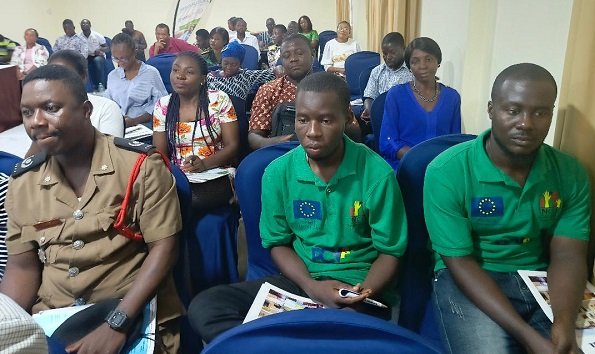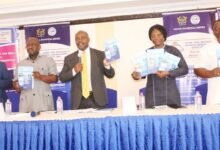Varsity don calls for stronger collaboration in tackling climate change

President of Millar Open University (MOU), Professor David Millar, has advocated stronger collaboration among stakeholders in tackling climate change, to avert its rippling effects on agriculture in the country.
According to him, climate change had posed serious threat to the agricultural sector, with scores of farmers reneging on investing in the sector, “because they don’t think investing in that sector is attractive anymore”.
Prof. Millar was speaking at a public lecture on climate change, organised by the Ghana Journalists Association (GJA), Upper East Chapter, in conjunction with the United States Agency for International Development (USAID) Feed the Future Ghana Policy LINK.
The event was held simultaneously with the launch of the third Upper East GJA Awards.
Prof. Millar asked the Feed the Future Policy LINK and other non-governmental organisations to work hand-in-hand with the media to monitor climate financing.
He noted that advanced countries had been contributing and disbursing funds for climate adaptation and mitigation in countries in Africa, but it appeared the farmers were short-changed.
In a speech read on his behalf, the Upper East Region Minister, Dr Hafiz Bin Salih, stated that climate change and its associated effects had dealt a huge blow to agricultural productivity.
The issue, according to him, had threatened livelihoods, making investment in agriculture not just a highly risky venture, but less attractive to the youth.
Dr Salih, therefore, called on all stakeholders, including farmers’ groups, not-for-profit making organisations in agriculture, the academia, the media among others, to concertedly pursue rigorous stance towards mitigating the consequences of climate change.
In his presentation on initiatives undertaken by the Feed the Future Ghana Policy LINK to minimise climate change in Ghana, Dr. Gerald Forkuor, mentioned that the organization would continue to embark on “aggressive” education and sensitisation campaigns across the country on the phenomenon.
He also said the organisation would intensify capacity building workshops for farmers’ groups, the media and stakeholders to appreciate the need to significantly contribute in reducing the adverse affects of climate change.
Dr Forkuor said Policy LINK was positioned to help farmers have access to extension services, training and policy support, to enable them to adapt to climate change.
He appealed to journalists to prioritise climate change reports.
“Agriculture all over the world is confronted with climate change, and Ghana has not been spared the dire consequences of the phenomenon, with scores of farmers grappling with reduced crop yields,” William Jalulah, chairman of the GJA, Upper East Chapter said.
On this year’s regional GJA awards, Mr Jalulah disclosed the event would come off on August 30, on the theme: “75 years of the GJA: the contribution of the media in shaping Ghana’s democracy through peaceful and fair elections”.
FROM FRANCIS DABRE DABANG, BOLGATANGA







